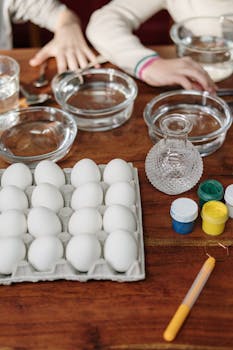Can You Put Wooden Spoons in the Dishwasher?
If you’re a home chef who loves using wooden spoons in the kitchen, you may be wondering whether it’s safe to put them in the dishwasher. While it’s always best to hand wash wooden utensils to prolong their lifespan, you may be able to occasionally use the dishwasher without causing damage. In this blog post, we’ll explore the pros and cons of putting wooden spoons in the dishwasher and provide some tips for proper care.
Pros of Putting Wooden Spoons in the Dishwasher
One of the main advantages of using the dishwasher to clean wooden spoons is convenience. It’s much quicker and easier to load them into the dishwasher along with your other dishes and utensils than to hand wash them separately. Additionally, the hot water and detergent in the dishwasher can help remove stubborn food particles and bacteria that may be lurking on your wooden spoons.
Cons of Putting Wooden Spoons in the Dishwasher
However, there are some drawbacks to using the dishwasher to clean wooden spoons. The high heat and harsh detergents in the dishwasher can cause the wood to warp, crack, or splinter over time. This can shorten the lifespan of your wooden spoons and make them less effective in the kitchen. Additionally, the dishwasher can strip the natural oils from the wood, leaving it dry and prone to cracking.
Tips for Putting Wooden Spoons in the Dishwasher
If you do decide to put your wooden spoons in the dishwasher, there are a few tips you can follow to minimize damage and prolong their lifespan:
1. Use the top rack: To reduce the risk of warping or cracking, always place your wooden spoons on the top rack of the dishwasher. This will keep them away from the direct heat of the bottom rack and prevent them from getting knocked around during the wash cycle.
2. Use a gentle cycle: Opt for a gentle or delicate cycle when washing wooden spoons in the dishwasher. This will help protect the wood from excessive heat and agitation, reducing the risk of damage.
3. Skip the heated dry cycle: To further protect your wooden spoons, consider skipping the heated dry cycle and allowing them to air dry instead. This will help prevent the wood from drying out and cracking due to the high heat.
4. Hand wash occasionally: While it’s tempting to use the dishwasher for convenience, it’s still best to hand wash your wooden spoons as often as possible. This will help preserve the natural oils in the wood and prevent damage from harsh detergents and heat.
Alternatives to Dishwashing Wooden Spoons
If you’re concerned about the potential damage that the dishwasher can cause to your wooden spoons, there are a few alternative cleaning methods you can try:
1. Hand wash with mild soap and water: The best way to clean wooden spoons is to hand wash them with a mild dish soap and warm water. Simply scrub them with a soft sponge or cloth, rinse thoroughly, and allow them to air dry.
2. Oil regularly: To keep your wooden spoons in top condition, it’s important to oil them regularly with mineral oil or coconut oil. This will help prevent the wood from drying out and cracking, prolonging their lifespan.
3. Avoid soaking: It’s important to avoid soaking wooden spoons in water for extended periods, as this can cause the wood to swell and crack. Instead, wash them quickly and dry them immediately to prevent damage.
Conclusion
In conclusion, while it’s generally best to hand wash wooden spoons to prolong their lifespan, you may be able to occasionally use the dishwasher without causing significant damage. By following the tips outlined in this blog post and being mindful of how you care for your wooden spoons, you can continue to enjoy using them in your kitchen for years to come. Remember, a little extra care goes a long way when it comes to preserving the beauty and functionality of your wooden utensils.
